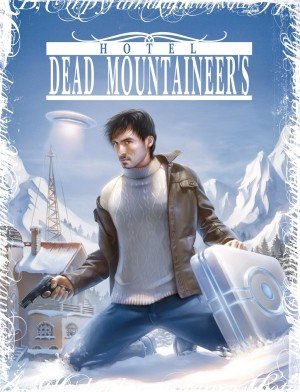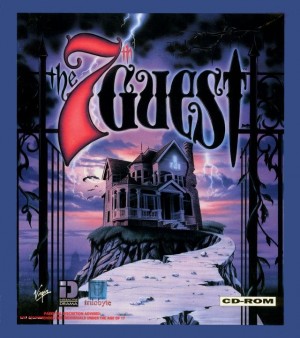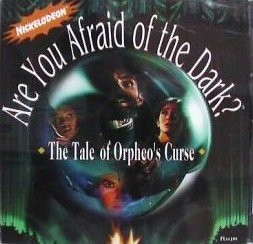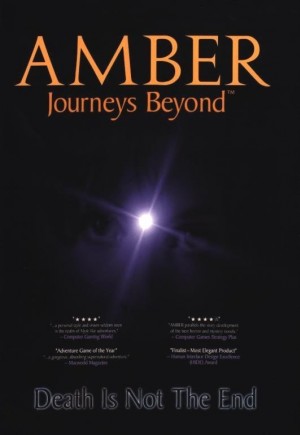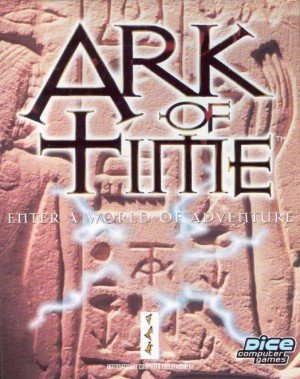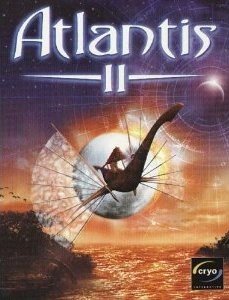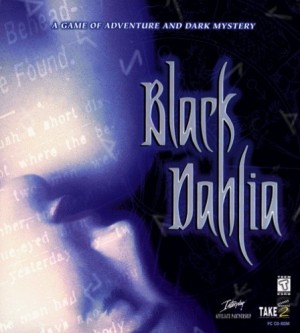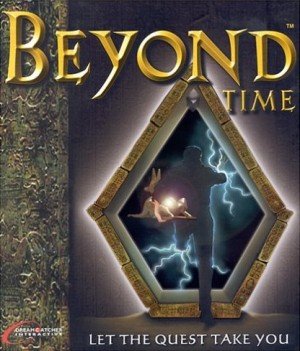Dead Mountaineer’s Hotel hands-on archived preview
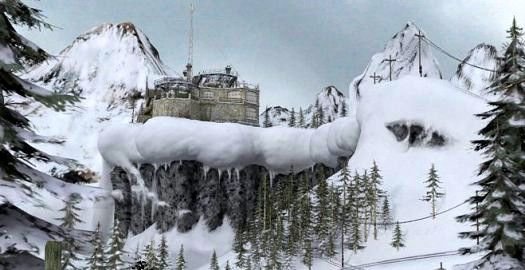
There’s something rather ominous about the title Dead Mountaineer’s Hotel, and sure enough, adventure gamers have seen their hopes of playing this game climb to giddy heights only to have them dashed against the rocks of crushing disappointment. It’s been almost five years since the Russian adventure from Electronic Paradise was first announced, two since the game’s own website was last updated, and over a year since its English release was finally scheduled by Lighthouse Interactive, only to become a victim of the company’s own tragic collapse. Is it time to re-name it “Dead Dreams Hotel” and call it a day?
Well, not if Akella has anything to say about it. The Russian publisher still has plans for an international release of Dead Mountaineer’s Hotel, and recently they provided me with a complete version of the game to play through. I won’t call it a “final” version, as the English localization is still limited to subtitles and further refinement is still possible (and recommended), but it was more than enough to put the game through its snowbound paces and offer up some early observations.
One glance at DMH’s screenshots will probably bring one word instantly to mind: Syberia. This comparison is quite valid in some respects: the basic third-person, point-and-click presentation and lovely pre-rendered wintry landscapes, all done in a distinctly Eastern-European setting and flavour bears more than a passing resemblance to Microïds’ artful Benoît Sokal classic. There are even some inventive perpetual motion machines powering the hotel in which this adventure takes place. The similarities are largely superficial, however, and pretty much end here, as Dead Mountaineer’s Hotel quickly establishes a style and storyline all its own.
The game begins as vacationing police lieutenant Peter Glebski arrives at the remote hotel, and all the action is confined to the resort’s interior and immediate surroundings, so you won’t be wandering off into the scenic wilderness. The hotel itself is pretty large, however, so there’s lots of exploring to do. It’s so big, in fact, that it’s a bit disorienting at first, even with an unmarked map that you soon acquire. Eventually, though, you’ll get your bearings the longer you roam the main hallways, lounges, guest rooms, library, and even the more secluded areas like the basement, pantry, wine cellar, and other storage areas.
Each location is nicely detailed and filled with lots of little visual touches, though the game’s advancing age is starting to catch up with it somewhat. Where a few years ago the graphics would have competed with the best in the genre, they don’t quite pop as crisply anymore. Nevertheless, DMH is still an attractive game, supplemented just as capably by a strong orchestral soundtrack that sets an almost eerily subtle atmosphere, like a calm before a storm – not inappropriately, as it turns out.
You’ll encounter other guests as you snoop around, though only a few ever seem to be available at any given time outside of the occasional group gathering. You’ll meet the famed hypnotist Eisenheim, a cybernetics scientist, and a wealthy businessman with his generously-endowed wife and their gender-ambiguous child among the random visitors to the Dead Mountaineer’s Hotel, along with the anxious hotel owner and a nebbish maid to keep operations running smoothly… Or, not so smoothly if you count all the unexplained events occurring of late. Most are relatively harmless, such as wet footprints, books being notated, and small items going missing, but in lieu of any other explanation, these activities have been attributed to the ghost of the hotel’s namesake (or “fatesake”, I guess).
One such event impacts Peter early on, as he’s inexplicably locked in his room and forced to find an alternate way out. Surprisingly, the storyline doesn’t really follow this lead too fervently, preferring a more relaxed approach. You’re a policeman, sure, but you are on vacation, after all. This leaves the game feeling a bit directionless at first, as you’re mainly just acclimating yourself to your new environs. When the plot does pick up later, however, it does so with a fury. One of the hotel’s residents is threatened, and when new arrivals show up as an avalanche blocks everyone in, the stage seems set for a classic whodunit.
It’s at this point that new events start happening so fast it’s hard to keep track of them all, and the game rushes headlong towards a mind-boggling conclusion that far exceeds the simple investigation it starts out to be. I may have to go back and replay the final few hours just to be sure I understand it all. DMH is based on a novel by the Strugatsky brothers, and perhaps the developers are relying on players to be familiar with the story already. That won’t generally be the case outside of Russia, so it all comes off a bit convoluted as the game currently stands.
Part of the problem is that the translation still needs work. The issue isn’t so much about blatant inaccuracy as a more general loss of coherence. Dialogue options don’t flow well together, and answers can seem out of sync with the questions, making it hard to follow even a simple conversation. Since English voice acting still needs to be recorded, this is an area that will have to be addressed anyway, so here’s hoping local publishing partners make the extra effort to polish the dialogues fully beforehand. One thing they won’t have to worry about is lip-matching, as the characters don’t move their mouths when they speak. This isn’t as big a deal as it sounds, however, as most conversations are shown from a distance, featuring only close-up stills of the people speaking.
Gameplay in DMH is fairly traditional, as are the mechanics behind it. Left-clicking performs all standard actions, while right-clicking pulls up the inventory, menu options, and a handy diary that includes character profiles and notes that serve almost as a de facto hint system at times, an icon appearing onscreen each time an update is added. There is no run option for the game’s rather leisurely protagonist, but double-clicking exit icons will usually make Peter move instantly to the next screen. “Instantly” following a short load screen each time, that is.
One small but significant difference from most adventures is the inclusion of an animated smart cursor. The standard pointer will change to a magnifying glass or wooden hand and the like over interactive hotspots, but the lag in animation is just long enough to be a hindrance. A quick cursor sweep may let you miss key items, particularly when the cursors themselves aren’t particularly precise. The animated cursor experiment certainly looks nice, but it was tried with Paradise and wisely abandoned there. Dead Mountaineer’s Hotel should follow suit.
Puzzles are largely inventory-based and most are fairly logical in application, but there are some other types in the mix as well. You’ll need to piece together a complex colour-coding pattern, and in a rather creative exercise, you’ll need to select a multi-course meal in a way that meets the demands of a balanced diet. With one notable exception, none are overly difficult and some even have multiple solutions, though that one is so poorly clued as to be all but impossible as it currently stands. It’s easily remedied, fortunately, long before it ever sees the light of finished day. The rest of the activity consists of small minigames, from darts to billiards to blackjack. These range in quality, and some are unnecessary to bother with at all. You will have to engage in at least one round of skiing, which switches to a side-scrolling, obstacle-dodging exercise that may (or may not) take a few tries. A short target-centering exercise is used in a few different contexts as well, but none should give players any undue challenge.
What’s surprising about Dead Mountaineer’s Hotel is how little gameplay there actually is. That’s not to suggest there’s nothing to do, as there’s always something to keep you busy, but entire rooms full of tantalizing objects are utterly neglected. A safe with a close-up of the lock practically screams “puzzle”, yes? No. [Update: I've since been told by Akella that this is part of an extended optional Easter egg sequence that isn't part of the main storyline, which unfortunately I missed.] You won’t even use all the items you do collect, and most offer a “Pick up” or ”Leave it” option in the first place. I thought perhaps this might have some strategic implications at some point, but there seems no reason to refuse anything that isn’t nailed down. Between this issue and the rushed pace of the second half, it seems as if a larger project was originally planned and then scaled back to its smaller current incarnation. And what’s left is not without some filler, as tasks frequently include traversing the entire hotel to question everyone about the latest situation or find one particular individual.
The game does offer two different endings, though really these are only small variations of the same one, and the only player input is a choice of two equally innocuous options right beforehand. By the time I reached that point, it was clear to me both why the game has had trouble finding its way to larger markets and why gamers still hope it does, its potential quite evident but not fully realized just yet. It’s a shame the delay hasn’t resulted in some further enhancements already, as clearly the game would benefit from some improvements beyond merely localizing the existing version. There’s still time for that, however, and if some of these wrinkles can yet be ironed out, there may just be enough quirky charm in this decidedly offbeat mystery to be worth booking in when the Dead Mountaineer's Hotel doors finally open for English business.



